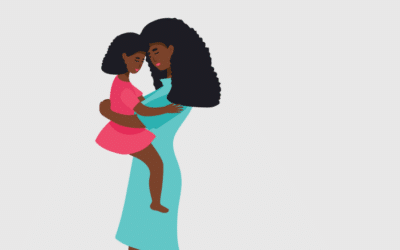Grief is a heavy thing. For those who’ve experienced it, it feels like you’re carrying around a boulder, and no matter how hard you try, you can’t seem to shake the weight. Really, it’s physically and mentally exhausting.
According to the Mayo Clinic, grief is a natural response to loss. It’s a “strong, sometimes overwhelming emotion of sadness stemming from losing a loved one, a terminal diagnosis, or the diagnosis of someone you care for.”
Looking back, I remember the first night I slept alone in that house. I recall thinking I should’ve felt sad, but that’s not what I remember. It was more like an empty, numb sensation. Honestly, I was sick to my stomach. It seemed like a bad dream.
I was always in a hurry to grow up. Marriage, family, “adulting” – they were important to me. And at a young age, I had it all. By any definition, I was living my best life. So, when I lost everything at twenty-five, it was pretty devastating.
It took months before I felt anything outside of the initial shock. But then, one morning, I woke up, started crying, and didn’t stop for almost a year. My whole identity was tied to my role as a wife and caregiver. At the time, I wanted nothing more than to have it all back.
How Grief Affects Us
Grief is both a universal and highly personalized experience. It affects each of us differently, and no two journeys through it are alike. However, there are similar challenges people confront while mourning. Below are some of the common physical and psychological responses to loss.
Physical Responses to Grief
Changes in sleep patterns.
Appetite changes
Headaches
Nausea
Dry mouth
Chest pain
Stomach pain
Fatigue
Psychological Responses to Grief
Sadness
Anger
Guilt
Anxiety
Shock
Loneliness
Yearning
Relief
Numbness
Disbelief
Confusion
Forgetfulness
Social withdrawal
Hallucinations
Preoccupation
The Weight of Grief Becomes Lighter
Eventually, I did move through that difficult period in my life. In fact, a decade later, I’m confident that I’m a stronger person because of it. But at the time, it was hard to see the light at the end of the tunnel. Really, it was twelve months of hardship. Struggle to get out of bed, leave the house, and even do basic things like interacting with others.
I had hit rock bottom. It wasn’t until I committed to putting the pieces back together to rebuild my life that I started to feel better. Each day, the weight of grief became lighter. The pain associated with loss began to lessen.
Tips to Cope with Grief
For many, moving through grief can be a challenging, even traumatic experience. However, over time, the pain associated with it subsides. That said, there are things you can do to cope and reduce your risk of experiencing an episode of prolonged or complicated grief.
Don’t isolate.
It’s tempting to isolate when you’re grieving, but don’t! Staying connected is a critical component to moving through the emotions tied to loss. Being plugged into others helps you find balance and provides the support needed to overcome grief.
Below are a few tips on how to stay connected:
Call a friend.
Accept help when offered.
Join a support group.
Make plans.
Host a monthly dinner or get together.
Use technology to reach out.
Create a routine.
Humans are creatures of habit! In fact, routine plays a vital role in our well-being– it’s both grounding and provides a sense of security. And while it can be challenging to create that structure when you’re feeling low, it’s well worth the effort.
So, don’t hesitate! Start by keeping a regular schedule for sleep, work, exercise, or whatever else ties together the fabric of your life.
Lean on supports.
When I’m having a hard time, family and friends often try to step in to help. And if this is the case for you as well, now is the time to accept their offers! Take them up on a free meal, help with chores, or whatever else you need to alleviate some burden off your shoulders.
That said, don’t be afraid to reach out, either. Gather your tribe! I guarantee the people who care about you are more than willing to help. So, please pick up the phone or send a quick text to tell others what you need.
Talk about it!
Talking about grief can be challenging. Really, navigating conversations around loss is awkward. But bottling up those heavy feelings isn’t easy either. In fact, doing so only prolongs your suffering. Remember, it’s okay to lean on family, friends, or other positive people in your life for support.
More so, there’s no shame in reaching out to a mental health provider if you need the help. Truthfully, finding a therapist is pretty straightforward online. In fact, many will meet with you virtually during this time of COVID.
If you’re in crisis and can’t see a way out, please call the National Suicide Prevention Lifeline at 1-800-273-8255.
Find acceptance.
Life after loss is hard. Personally, I spent so much time ruminating on the past that I struggled to see into the future. But at some point, just like anyone else who’s experienced grief, I needed to move forward.
That said, turning the page to the next chapter of your life doesn’t mean who or what you’re grieving is any less significant. You can still honor your memories while pressing onward. Remember, by accepting loss; you make space for grief without drowning in its waters.
Want More?
If you enjoyed this article, check out the rest of our blog today and make sure to follow us on social media. You can find us at youthdynamicsmt on Instagram, or Youth Dynamics of Montana and People of Youth Dynamics on Facebook.






